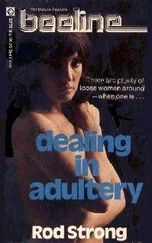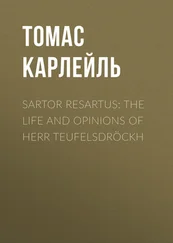Vladimir Nabokov - Strong opinions
Здесь есть возможность читать онлайн «Vladimir Nabokov - Strong opinions» весь текст электронной книги совершенно бесплатно (целиком полную версию без сокращений). В некоторых случаях можно слушать аудио, скачать через торрент в формате fb2 и присутствует краткое содержание. Город: New York, Год выпуска: 1990, Издательство: First Vintage International Edition, Жанр: Классическая проза, на английском языке. Описание произведения, (предисловие) а так же отзывы посетителей доступны на портале библиотеки ЛибКат.
- Название:Strong opinions
- Автор:
- Издательство:First Vintage International Edition
- Жанр:
- Год:1990
- Город:New York
- ISBN:нет данных
- Рейтинг книги:4 / 5. Голосов: 1
-
Избранное:Добавить в избранное
- Отзывы:
-
Ваша оценка:
- 80
- 1
- 2
- 3
- 4
- 5
Strong opinions: краткое содержание, описание и аннотация
Предлагаем к чтению аннотацию, описание, краткое содержание или предисловие (зависит от того, что написал сам автор книги «Strong opinions»). Если вы не нашли необходимую информацию о книге — напишите в комментариях, мы постараемся отыскать её.
Strong opinions — читать онлайн бесплатно полную книгу (весь текст) целиком
Ниже представлен текст книги, разбитый по страницам. Система сохранения места последней прочитанной страницы, позволяет с удобством читать онлайн бесплатно книгу «Strong opinions», без необходимости каждый раз заново искать на чём Вы остановились. Поставьте закладку, и сможете в любой момент перейти на страницу, на которой закончили чтение.
Интервал:
Закладка:
Another substitute, surely, has been your own euphonious prose and poetry. As one of few authors who have written with eloquence in more than one language, how would you characterize the textural differences between Russian and English, in which you are regarded as equally facile?
In sheer number of words, English is far richer than Russian. This is especially noticeable in nouns and adjectives, A very bothersome feature that Russian presents is the dearth, vagueness, and clumsiness of technical terms.
For example, the simple phrase «to park a car» comes out — if translated back from the Russian — as «to leave an automobile standing for a long time». Russian, at least polite Russian, is more formal than polite English. Thus, the Russian word for «sexual» — polovoy — is slightly indecent and not to be bandied around. The same applies to Russian terms rendering various anatomical and biological notions that are frequently and familiarly expressed in English conversation. On the other hand, there are words rendering certain nuances of motion and gesture and emotion in which Russian excels. Thus by changing the head of a verb, for which one may have a dozen different prefixes to choose from, one is able to make Russian express extremely fine shades of duration and intensity. English is, syntactically, an extremely flexible medium, but Russian can be given even more subtle twists and turns. Translating Russian into English is a little easier than translating English into Russian, and 10 times easier than translating English into French.
You have said you will never write another novel in Russian. Why?
During the great, and still unsung, era of Russian intellectual expatriation — roughly between 1920 and 1940 — books written in Russian by emigre Russians and published by emigre firms abroad were eagerly bought or borrowed by emigre readers but were absolutely banned in Soviet Russia — as they still are (except in the case of a few dead authors such as Kuprin and Bunin, whose heavily censored works have been recently reprinted there), no matter the theme of the story or poem. An emigre novel, published, say, in Paris and sold over all free Europe, might have, in those years, a total sale of 1,000 or 2,000 copies — that would be a best seller — but every copy would also pass from hand to hand and be read by at least 20 persons, and at least 50 annually if stocked by Russian lending libraries, of which there were hundreds in West Europe alone. The era of expatriation can be said to have ended during World War II. Old writers died, Russian publishers also vanished, and worst of all, the general atmosphere of exile culture, with its splendor, and vigor, and purity, and reverberative force, dwindled to a sprinkle of Russianlanguage periodicals, anemic in talent and provincial in tone. Now to take my own case: It was not the financial side that really mattered; I don't think my Russian writings ever brought me more than a few hundred dollars per year, and I am all for the ivory tower, and tor writing to please one reader alone — one's own self. But one also needs some reverberation, if not response, and a moderate multiplication of one's self throughout a country or countries; and if there be nothing but a void around one's desk, one would expect it to be at least a sonorous void, and not circumscribed by the walls of a padded cell. With the passing of years I grew less and less interested in Russia and more and more indifferent to the onceharrowing thought that my books would remain banned there as long as my contempt for the police state and political oppression prevented me from entertaining the vaguest thought of return. No, I will not write another novel in Russian, though I do allow myself a very few short poems now and then. I wrote my last Russian novel a quarter of a century ago. But today, in compensation, in a spirit of justice to my little American muse, I am doing something else. But perhaps I should not talk about it at this early stage.
Please do.
Well, it occurred to me one day — while I was glancing at the varicolored spines of Lolita translations into languages I do not read, such as Japanese, Finnish or Arabic — that the list of unavoidable blunders in these fifteen or twenty versions would probably make, it collected, a fatter volume than any of them. I had checked the French translation, which was basically very good yet would have bristled with unavoidable errors had I not corrected them. But what could I do with Portuguese or Hebrew or Danish? Then I imagined something else. I imagined that in some distant future somebody might produce a Russian version of Lolita. I trained my inner telescope upon that particular point in the distant future and I saw that every paragraph, pockmarked as it is with pitfalls, could lend itself to hideous mistranslation. In the hands of a harmful drudge, the Russian version of Lolita would be entirely degraded and botched by vulgar paraphrases or blunders. So I decided to translate it myself. Up to now 1 have about sixty pages ready.
Are you presently at work on any new project?
Good question, as they say on the lesser screen. I have just finished correcting the last proofs of my work on Pushkin's Eugene Onegin — four fat little volumes which are to appear this year in the Bollingen Series; the actual translation of the poem occupies a small section of volume one. The rest of the volume and volumes two, three and four contain copious notes on the subject. This opus owes its birth to a casual remark my wife made in 1950 — in response to my disgust with rhymed paraphrases of Eugene Onegin, every line of which I had to revise for my students — «Why don't you translate it yourself?» This is the result. It has taken some ten years of labor. The index alone runs to 5,000 cards in three long shoe boxes; you see them over there on that shelf. My translation is, of course, a literal one, a crib, a pony. And to the fidelity of transposal I have sacrificed everything: elegance, euphony, clarity, good taste, modern usage, and even grammar.
In view of these admitted flaws, are you looking forward to reading the reviews of the book?
I really don't read reviews about myself with any special eagerness or attention unless they are masterpieces of wit and acumen — which does happen now and then. And I never reread them, though my wife collects the stuff, and though maybe I shall use a spatter of the more hilarious Lolita items to write someday a brief history of the nymphet's tribulations. I remember, however, quite vividly, certain attacks by Russian emigre critics who wrote about my first novels 30 years ago; not that I was more vulnerable then, but my memory was certainly more retentive and enterprising, and I was a reviewer myself. In the nineteentwenties I was clawed at by a certain Mochulski who could never stomach my utter indifference to organized mysticism, to religion, to the church — any church. There were other critics who could not forgive me for keeping aloof from literary «movements», for not airing the «angoisse» that they wanted poets to feel, and for not belonging to any of those groups ot poets that held sessions ot common inspiration in the back rooms of Parisian cafes. There was also the amusing case of Georgiy Ivanov, a good poet but a scurrilous critic. I never met him or his literary wife Irina Odoevtsev; but one day in the late nineteentwenties or early nineteenthirties, at a time when 1 regularly reviewed books for an emigre newspaper in Berlin, she sent me from Paris a copy of a novel of hers with the wily inscription «Spasibo za Korolya, damu, valeta» (thanks for King, Queen, Knave) — which I was free to understand as «Thanks for writing that book», but which might also provide her with the alibi: «Thanks for sending me your book», though I never sent her anything. Her book proved to be pitifully trite, and I said so in a brief and nasty review. Ivanov retaliated with a grossly personal article about me and my stuff. The possibility of venting or distilling friendly or unfriendly feelings through the medium of literary criticism is what makes that art such a skewy one.
Читать дальшеИнтервал:
Закладка:
Похожие книги на «Strong opinions»
Представляем Вашему вниманию похожие книги на «Strong opinions» списком для выбора. Мы отобрали схожую по названию и смыслу литературу в надежде предоставить читателям больше вариантов отыскать новые, интересные, ещё непрочитанные произведения.
Обсуждение, отзывы о книге «Strong opinions» и просто собственные мнения читателей. Оставьте ваши комментарии, напишите, что Вы думаете о произведении, его смысле или главных героях. Укажите что конкретно понравилось, а что нет, и почему Вы так считаете.










